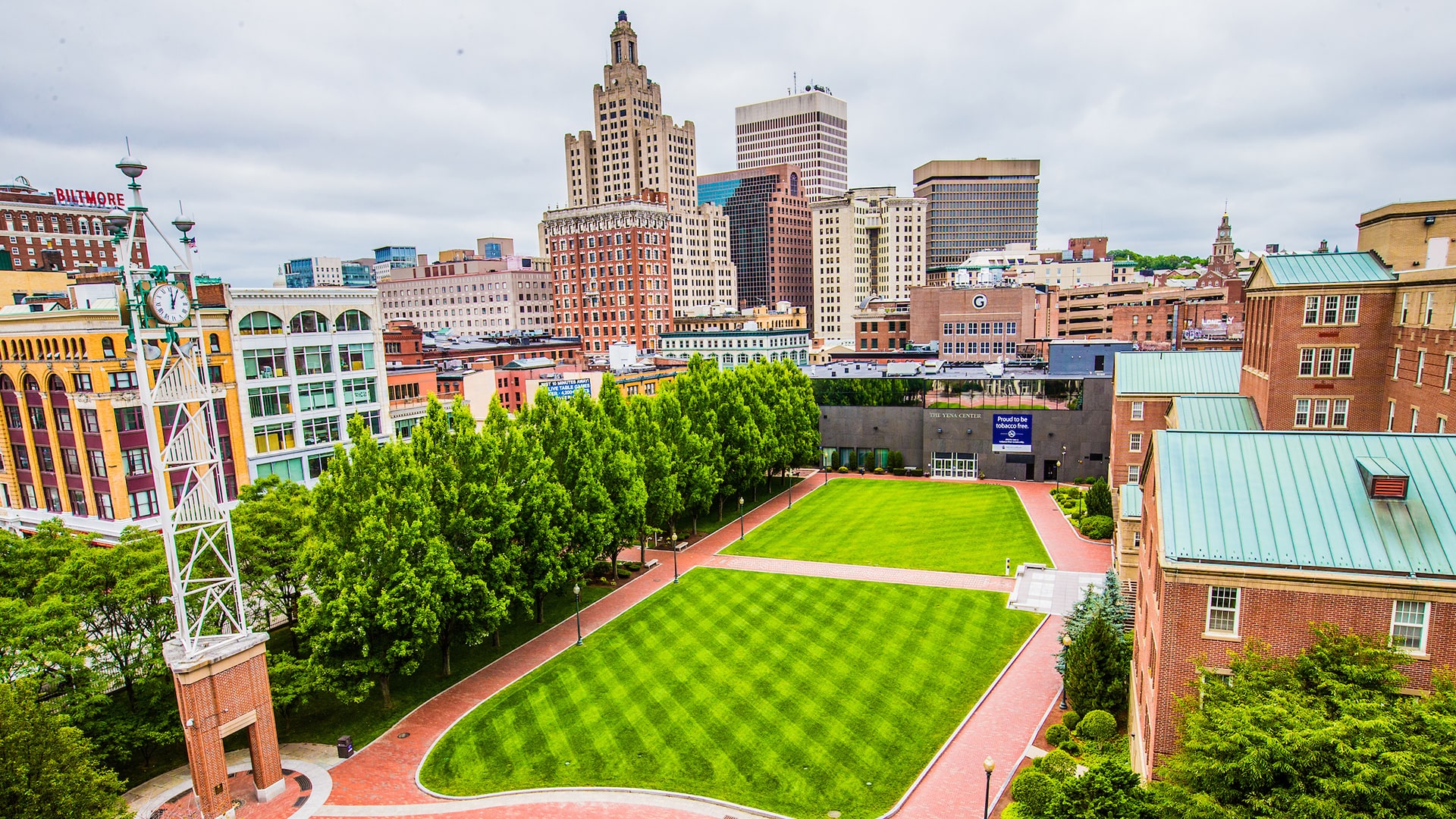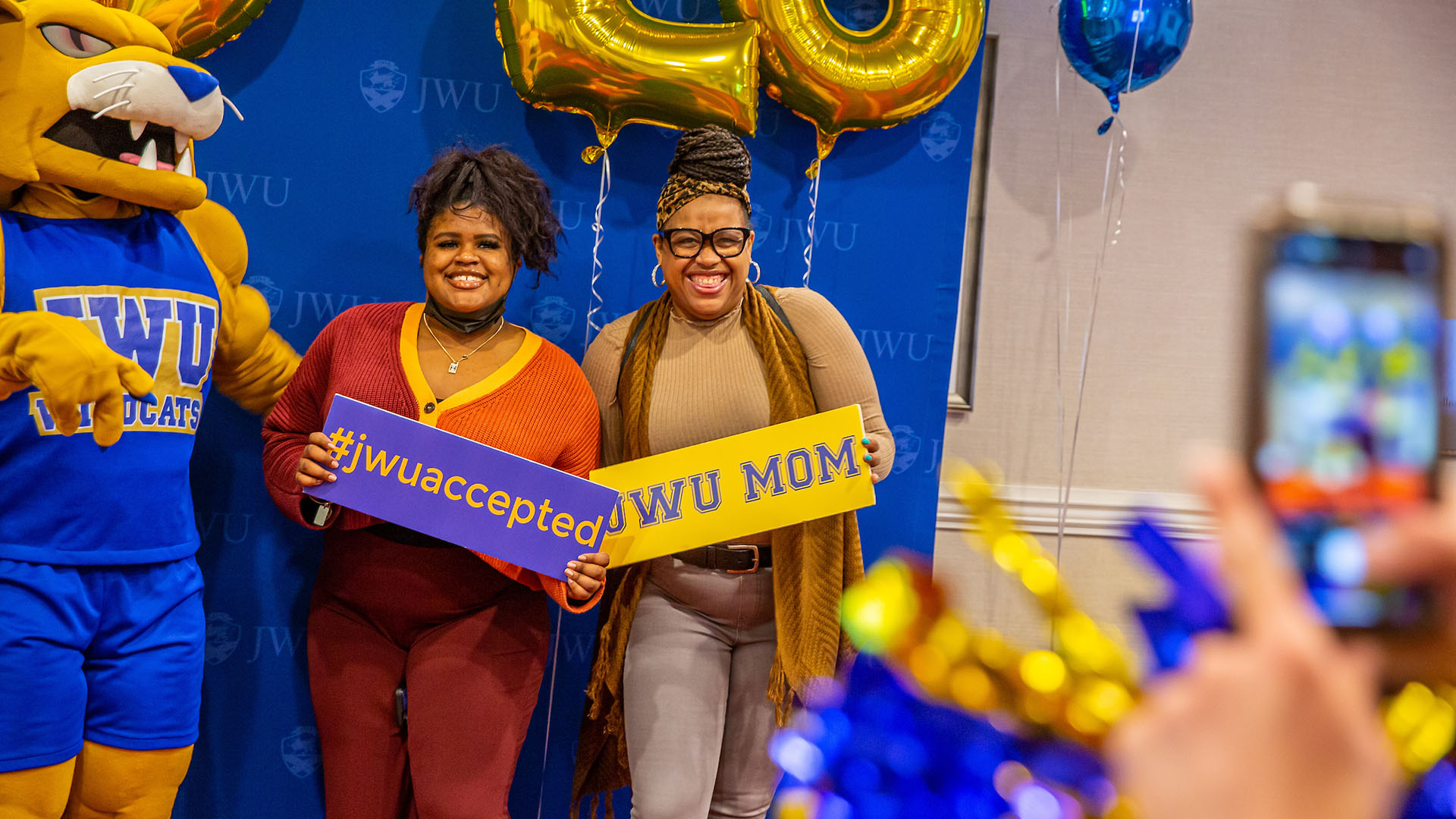JWU's Green Initiatives: Leading the Way to a Sustainable Future
JWU’s Commitment to a Sustainable Future
Sun shining, horns honking, cityscapes; only the students rushing back and forth from class to club, from dining hall to dorm, serve as a reminder that you are, in fact, on a college campus. Some students chat and scroll their phones on the bench that sits on “Sustainability Way,” the pathway between Wales Hall and the Richmond parking garage. They sit beside signs that shout accolades reading “Bee Campus” and “Tree Campus USA”: praises of sustainable practices that go hand in hand with the bench itself, made from 1,000 lb. of plastic recycled by the Johnson & Wales Energy Conservation Office (ECO). Not only are you smack dab in the middle of a college campus in a buzzing downtown – it’s a college campus committed to a cleaner future.
Since its conception in 2013, JWU ECO has prioritized sustainability efforts that have led the university toward remarkable milestones.
“Over the years, the department has evolved into JWU ECO with about 12 federal work-study and student assistants on staff who assist with the different diversion waste streams, managing sustainability initiatives and putting on sustainable events,” said Matt Fannon, JWU’s director of sustainability and resource management.
Fannon and his team lead initiatives like JWU’s Move Out and Donate campaign, which, in 2024, resulted in over 9,000 lb. of donations to nonprofits like Big Brothers Big Sisters of Rhode Island and the Rhode Island Food Bank.
“Many of our initiatives come from student interest in specific projects,” Fannon said. “The Move and Donate campaign is a perfect example of that, and each year we work with a senior portfolio class to create the marketing for the campaign.”
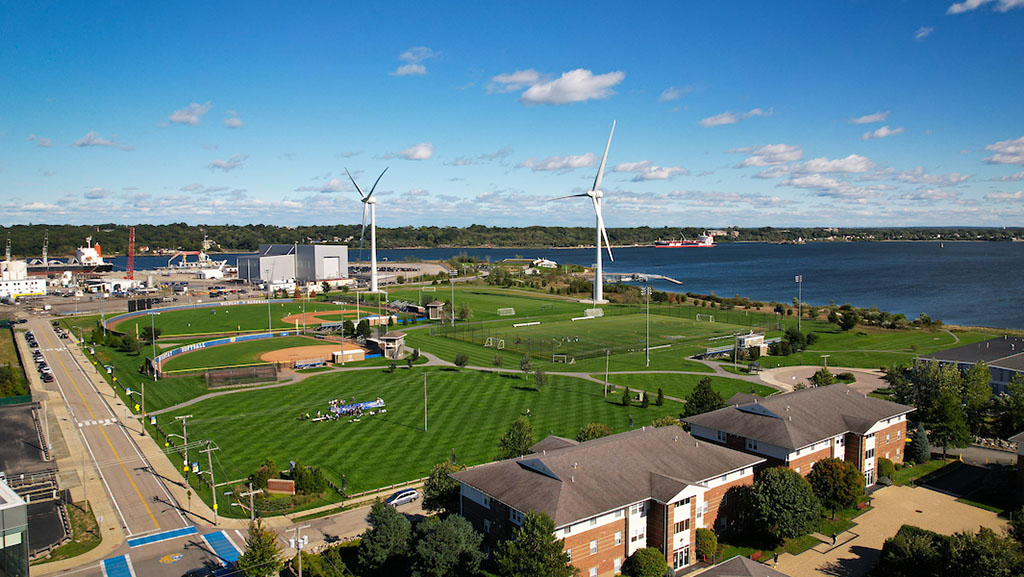
Sustainability by the Stats
Through energy efficiency projects strategically led by JWU ECO, JWU continues to make significant strides in reducing electricity consumption. In 10 years, the Providence Campus’ electricity usage has decreased by 33.27% and seen a campus footprint reduction of 11.07%. JWU’s Downcity and Harborside Campuses tout solar fields, wind turbines, electric vehicle charging stations and student-managed community gardens. The university is also exploring a microgrid project to include solar canopies for parking lots.
“We have four Leadership in Energy and Environmental Design (LEED) Gold Certified buildings on campus, which is a green building rating system used to make buildings more energy efficient and sustainable,” said Fannon.
Outside its eco-conscious buildings, JWU Providence takes pride in its green space in the middle of the city. The campus is in its fifth year of being honored with the Tree Campus USA award — recognizing the hundreds of trees planted by dedicated students, staff and faculty — and in 2024, JWU became the first organization in Rhode Island to receive the Bee Campus USA award, providing safe habitats for pollinators and educational opportunities about their pivotal role in ecosystems.
“Having JWU be the first organization in Rhode Island to be recognized for Bee Campus USA speaks volumes to how JWU prioritizes sustainability on campus, as well as wildlife and bee conservation,” said Michelle Galvin, M.Ed., JWU’s sustainability coordinator. “Our commitments to maintaining our affiliation with Bee Campus include the planting of pollinator gardens, the reduction of pesticides, the use of proper signage and education opportunities that incorporate pollinator conservation.”
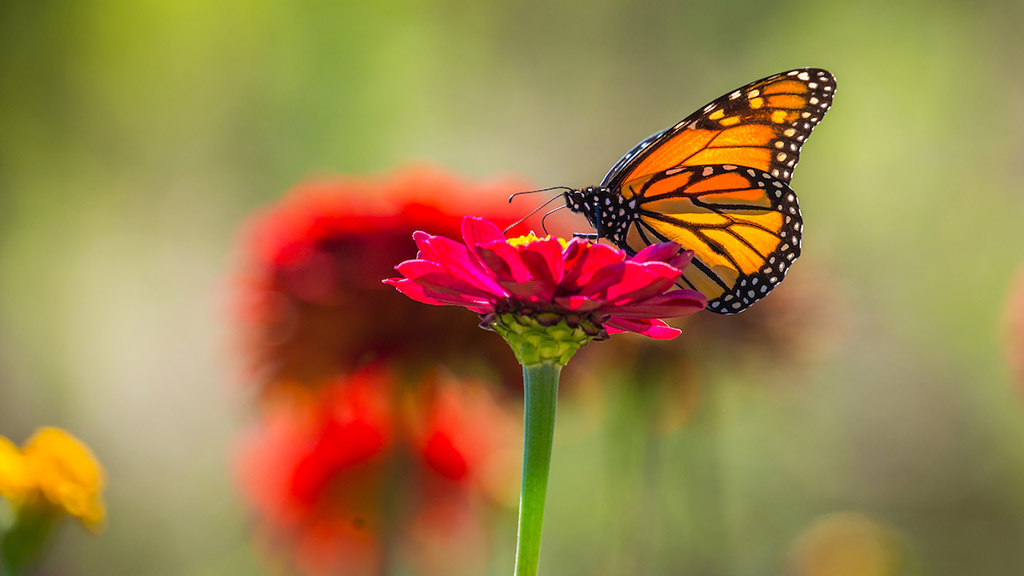
A Buzzing Campus Collaboration
JWU’s beehive site is located on the Harborside Campus next to the Green Collaborative Community Gardens, which hold 100 pollinator plants implemented by culinary arts students as part of their mead-making course.
“This collaborative lesson teaches students the importance of bee conservation,” Galvin said. “[It] shows students that creating one's own natural, sustainable food systems is imperative and valuable to the future of culinary industries.”
Other accomplishments include the elimination of plastic bags on campus and establishment of a campus surplus sale for waste diversion — and the work is never complete.
“Managing several sustainability initiatives, from early planning to implementation, has improved our project management abilities and taught us the value of efficiency and effectiveness in our professional and academic life,” students within JWU ECO shared. “Implementing numerous sustainability efforts, such as energy-saving programs and waste-reduction campaigns, has taught us the value of incorporating sustainability into all parts of our life and we want to push for environmentally friendly practices in any future organizations to which we may belong.”
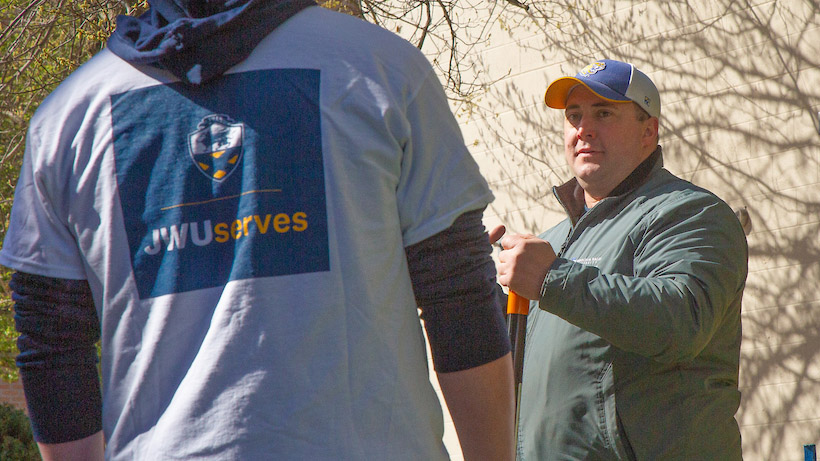
Repping JWU’s Commitment to a Clean Planet
The university is currently a member of the Association for the Advancement of Sustainability in Higher Education (AASHE) in pursuit of the STARS (Sustainability Tracking Assessment and Rating System) certification. While the work is never quite done, the last decade’s achievements have earned Fannon recognition and praise, being named one of Providence Business Journal’s 40 Under Forty in the 2024 group.
“I honestly feel, as a university, that JWU is one of the leaders in sustainability,” Fannon said. “I tell our students all the time that sustainability doesn’t have to be an all-or-nothing thing; just making a few changes that fit your lifestyle makes a difference. If you change a few more habits each year, you start to make a bigger impact!”
So next time you find yourself in JWU’s Sustainability Walkway, take a seat and take it in; Wildcats are taking massive leaps toward a cleaner and greener future.
